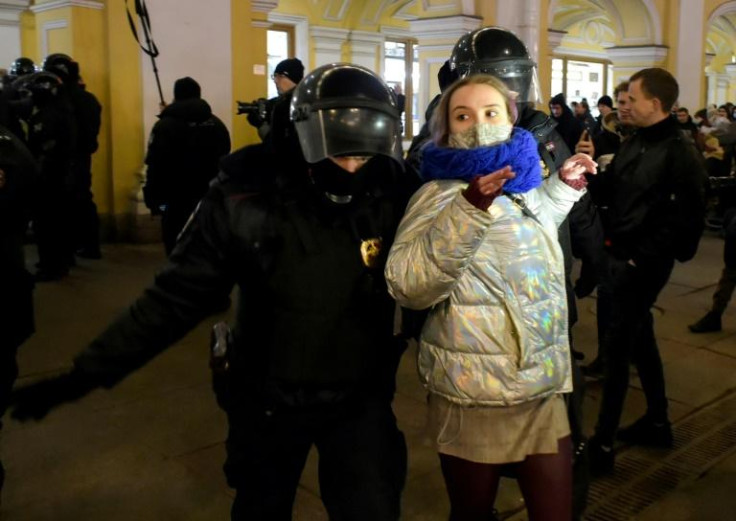Anti-war activists in Russia could spend 15 years in prison
The Russian Constitutional Court continues criminalising anyone who allegedly discredits the Russian Armed Forces or participates in anti-war protests.

Human rights experts have expressed increasing concerns regarding Russia's decision to dismiss all legal challenges to the country's criminalisation of "public actions aimed at discrediting" the Russian Armed Forces.
The human rights experts revealed: "The law has no other objective than silencing critical expression in relation to the war in Ukraine. The legislation is a drastic step in a long string of measures over the years restricting freedom of expression and media freedom, and further shrinking civic space in the Russian Federation."
Shortly after Russia's full-scale invasion of Ukraine in February, the law that criminalised those speaking against the Russian Army was put in place in an attempt to unite the country.
Special Rapporteurs have said that since the law was adopted, almost 20,000 people have been arrested for protesting against the war in Ukraine, together with 7,000 people who have been arrested for actions that allegedly "discredit" the Russian military.
The UN Human Rights Council believes that "the decision to deny constitutional protection of the right to freedom of expression constitutes a new low in Russia's clampdown on the freedom of expression and the free flow of information".
The UN Human Rights Council continued to explain that "the interpretation of the Constitutional Court and the rejection of complaints challenging these legislative provisions will silence all those expressing critical views regarding Russia's so-called 'special military operation' in Ukraine".
The Russian Constitutional Court has also conducted 24 cases that relate to the discrediting of the military and has rejected all legal challenges to the law. The cases made their way to court on the grounds that the Russian Armed Forces and State officials are unable to be penalised, considering their behaviour in recent months were prerogatives of the national Government.
The Special Rapporteurs have also warned that thousands of activists, journalists, and human rights defenders in Russia have already faced harsh punishments ranging from five to 15 years imprisonment.
Small as they may be, these anti-war stickers and inscriptions appear on the streets all around Russia. It is almost the only relatively safe form of protest left for the citizens of the country, with its crackdown on antiwar movement pic.twitter.com/51QlUbwWLw
— The Ark (@KovchegLive) August 24, 2023
In March 2022, more than 4,800 people were detained during a huge protest that spread across 69 cities in Russia. In videos posted on social media thousands of protestors in Moscow and St. Petersburg were heard chanting "No to war!" and "Shame on you!".
Several protestors across the country were also seen carrying Ukrainian flags and signs that depicted slogans against Putin and the war in Ukraine.
Maria Kuznetsova, a spokesperson for the human rights media project OVO-Info said: "The screws are being fully tightened – essentially we are witnessing military censorship."
Since the crackdown on anti-war activists, the protests have become muted and controlled by the government.
Anna Kuleshova, a Sociologist who took part in a Russian immigration research project after March 2022, interviewed around 100 people to investigate the lack of anti-war protests in Russia.
Anna Kuleshova explained from her findings that one of the reasons that anti-war protestors in Russia are not taking to the streets is because they are "afraid of beatings, violence, humiliation, long prison terms, having their children taken from them, losing their job, and confronting authorities who refuse to issue passports and other essential documents".
While the Russian continues to sentence those who hold any form of negative opinion toward the Russo-Ukraine conflict, the State are encouraging Russian nationals to defend the fatherland and to hold the trust between the State and society in high regard.
Speaking of the rooting out of anti-war mindsets in Russia, the Special Rapporteurs explained that the Constitutional Court's behaviour and "decisions will exacerbate an already severe crackdown on civil society, independent media, and critical voices".
"We respectfully urge the Constitutional Court to change course and guarantee freedom of expression in Russia, and urge Russian authorities to repeal the legislation," they added.
© Copyright IBTimes 2025. All rights reserved.






















